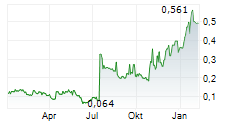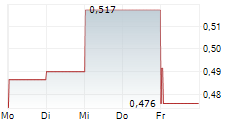
LUND, SE / ACCESSWIRE / October 11, 2024 / Cantargia (STO:CANTA) Cantargia (Cantargia AB; Nasdaq Stockholm: CANTA) today announced new results from the CAN10 phase 1 clinical study. All nine groups, including 68 participants receiving a single dose of CAN10 or placebo, show good safety and promising biomarker results. Importantly, even 1 week after the infusion, a single dose of CAN10 can completely block IL-1 signaling in the blood of the participants. Thereby, combined with the previous confirmation of complete blockade of IL-36 stimulation, key endpoints have been reached. Thus, the phase 1 single dose study strongly validates the potential and the unique mode of action of CAN10. The second part of the trial investigating multiple dosing is ongoing.
"We are extremely happy with the outcome of the single dose part of the phase 1 clinical trial. CAN10 show good safety and potent effects on biomarkers. Additional results of high importance will be generated in the ongoing multiple dosing part ahead of phase 2 clinical trials, planned to start H2 2025," said Göran Forsberg, CEO of Cantargia.
CAN10 is one of two clinical projects in the Cantargia pipeline. The CAN10 antibody has been designed for treatment of several autoimmune/inflammatory diseases stimulated by IL-1, IL-33 and/or IL-36. The ongoing phase 1 clinical trial initially investigates increasing levels of CAN10 as single intravenous administration in healthy subjects followed by studies of subcutaneous multiple dosing in participants with psoriasis. The primary endpoint relates to safety. Details on the trial can be found at https://clinicaltrials.gov/study/NCT06143371 . The first phase 2 clinical study is planned to start in H2 2025 to investigate CAN10 therapy in e.g. hidradenitis suppurativa or systemic sclerosis.
All nine dose groups investigating a single infusion in healthy subjects have passed the protocol stipulated safety review after 2 weeks follow up. No safety concerns were reported and the next part of the trial, multiple dosing in participants with psoriasis, is ongoing. As previously communicated, biomarker samples taken during the study show a potent dose dependent blockade of IL1RAP function, which was measured as inhibition of IL-36 signaling in immune cells. The study also investigates blockade of IL-1 signaling in immune cells. Those analyses have now been finalized and as predicted, CAN10 completely blocks IL-1 signaling in immune cells even a week after a single dose of CAN10. The ability to block both IL-1 and IL-36 signaling is a unique feature of IL1RAP-blockade that is not recapitulated by drugs targeting the individual pathways.
For further information, please contact
Göran Forsberg, CEO
Telephone: +46 (0)46-275 62 60
E-mail: goran.forsberg@cantargia.com
This information is information that Cantargia is obliged to make public pursuant to the EU Market Abuse Regulation. The information was submitted for publication, through the agency of the contact persons set out above, at 2024-10-11 11:50 CEST.
About Cantargia
Cantargia AB (publ), reg. no. 556791-6019, is a biotechnology company that develops antibody-based treatments for life-threatening diseases and has established a platform based on the protein IL1RAP, involved in a number of cancer forms and inflammatory diseases. Cantargia's oncology program, the antibody nadunolimab (CAN04), is being studied clinically primarily in combination with chemotherapy with a focus on pancreatic cancer, non-small cell lung cancer and triple-negative breast cancer. Positive interim data for the combinations indicate stronger efficacy than would be expected from chemotherapy alone. Cantargia's second development program, the antibody CAN10, blocks signaling via IL1RAP in a different manner than nadunolimab and addresses treatment of serious autoimmune/inflammatory diseases, with initial focus on systemic sclerosis and myocarditis.
Cantargia is listed on Nasdaq Stockholm (ticker: CANTA). More information about Cantargia is available at www.cantargia.com .
About CAN10
The CAN10 antibody binds strongly to its target IL1RAP and has a unique capability to simultaneously inhibit signaling via IL-1, IL-33 and IL-36. Inhibition of these signals can be of significant value in the treatment of several inflammatory or autoimmune diseases. The initial focus of CAN10 will be on two severe diseases: hidradenitis suppurativa (HS) and systemic sclerosis. In preclinical in vivo models of inflammatory diseases, such as systemic sclerosis, psoriasis, psoriatic arthritis, atherosclerosis, myocarditis and peritonitis, a CAN10 surrogate antibody significantly reduced the development of the disease. A clinical phase 1 study, investigating CAN10 in healthy volunteers and psoriasis patients, is ongoing. Up to 80 subjects may be included in the trial. Good safety is shown at the completed dose levels, and additional data from the trial are expected continuously during 2024 and 2025.
Attachments
Cantargia reports new positive results on biomarkers and safety in CAN10 phase 1 clinical study
SOURCE: Cantargia
View the original press release on accesswire.com


